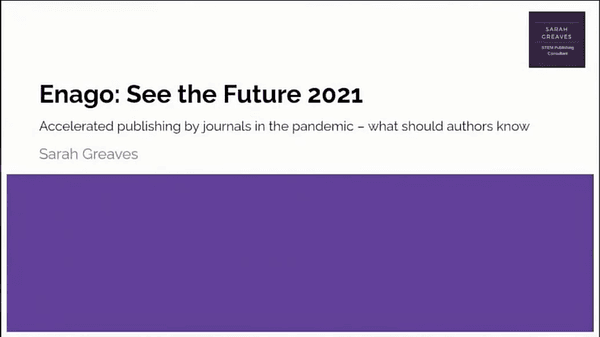Would you like to see your presentation here, made available to a global audience of researchers?
Add your own presentation or have us affordably record your next conference.
Objective Over the past decade, several journals in Africa have transitioned from email submission systems to web- based platforms for manuscript submission and editorial processes.1 Previous reports1,2 assessing experience with these systems have revealed conflicting feedback from authors and editorial teams, with varying reports of user friendliness. Notably, a letter to the editor published in Nature3 stated that such systems “make authors do all the work.” Over time, online submission systems have sought to have in-built programs to enable automation of the submission process to ease the authors’ experience. The Annals of African Surgery uses the submission prefill feature in its submission system for the aforementioned purpose.
Design This study was cross-sectional. To establish efficacy and gather authors’ experience of the online submission system and the submission prefill (ie, the system that automatically extracts and populates submission fields for authors from an uploaded manuscript text file), authors submitting articles to the Annals of African Surgery were surveyed between September and December 2021. This survey was delivered to authors using the manuscript submission system, during the submission process, and at the end of the editorial workflow after the final decision was made.
Results A total of 44 authors completed the survey on submission prefill, and 42 completed the survey on the manuscript submission system. Because the surveys were embedded as part of the submission processes, the response rate was 100%. Overall, the responses to the question of whether the submission prefill was effective in reducing the workload were divided evenly (50.0% agree vs 50.0% neutral), but there was overwhelmingly positive feedback on the effectiveness of manuscript submission system in terms of its ease of use (88.1%) and in obtaining the status of the manuscript (92.9%). The survey questions and their respective responses are as outlined in Table 80.

Conclusions There was overall positive feedback regarding authors’ interaction with the web-based online submission interface. Feedback from authors’ experience on whether submission prefills reduce submission labor, however, still remains divided. Measures taken to improve the prefill’s capacity to extract manuscript details with better accuracy would, hence, enhance authors’ experience.
References
- Ware M. Online submission and peer-review systems. Learned Publishing. 2005;18(4):245-250. doi:10.1087/095315105774648771
- Ware M. Authors say that they prefer online submission. Nature. 2005;434(7033):559. doi:10.1038/434559d
- Moore JP. Online submission makes authors do all the work. Nature. 2005;433(7028):800. doi:10.1038/433800d
Conflict of Interest Disclosures James Kigera is a member of the Peer Review Congress Advisory Board but was not involved in the review or decision for this abstract. No other disclosures were reported.


